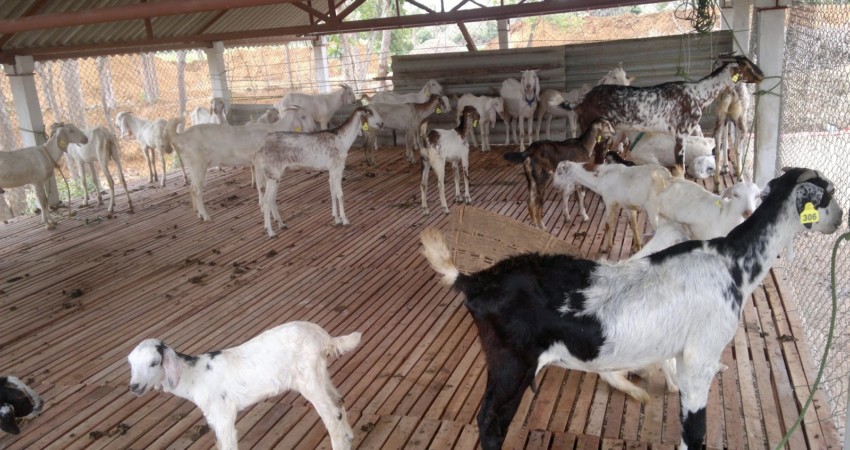

These are a series of activities like spraying, de-worming, disbudding, castration, hoof trimming, proper milking practices and general hygiene.
Management of parasitic infestation: Most animals carry parasites burdens, but the pressure of parasites is not serious until the population rises to the extent that the host animals start showing signs e.g. weight loss, diarrhoea, unthriftness, bottle jaw, coughs, loss of hair, scratching against the wall. The parasites are divided into ecto and endo –parasites.
Ecto-parasites (external): These are mainly the ticks, biting flies, fleas, mites. This can be controlled by spraying with appropriate acaricide or using a pour-on acaricide (commonly used are the organosulphates).
Endo-parasites (internal): These are mainly worms e.g. round worms, hookworms, tapeworms, lung worms, flukes.
Regular deworming of goats and kids after every 3 months. Repeat deworming to any animal showing worm infestation. Also, avoid grazing animals on pastures in early morning
Hoof trimming: This is a management practice to control abnormal growth of hooves that may lead to lameness in goats. Lameness in goats hinders locomotion, mating and may cause injury to both the handler and other goats on the farm. The overgrown hooves can be trimmed using hoof knife and dipping the hooves in copper sulphate solution. The stock should have their feet regularly checked for damage due to overgrown hooves.
Castration: Castrate the young males not intended for breeding at six months. This can be done by using the rubber-ring elastrator
Disbudding: This done at 3 months of age using hot bars (disbudding irons). Its done to both male and female kids
 Contact Jaguza Support
Contact Jaguza Support